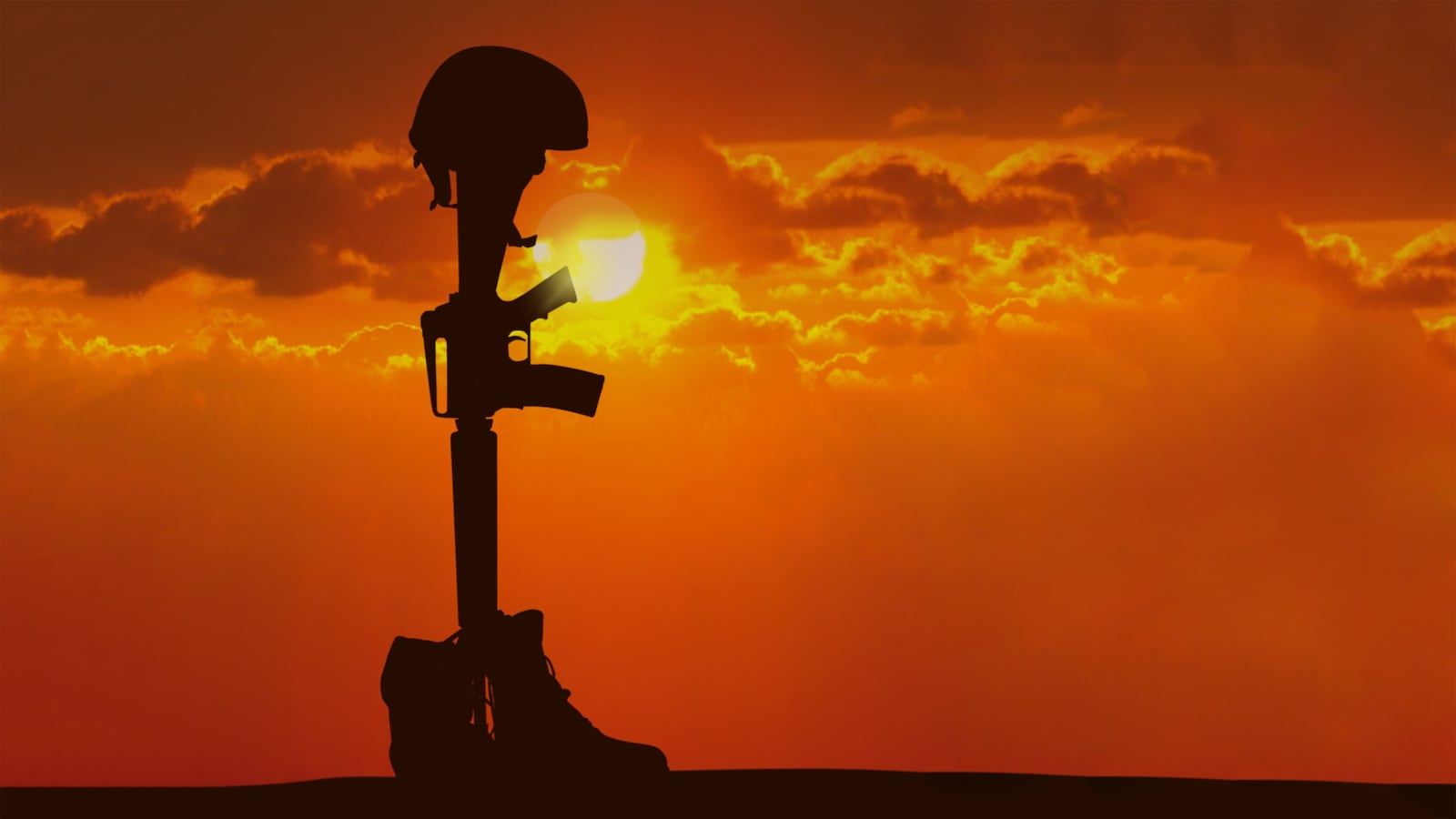For days after an ambush in southwestern Niger, U.S. Army Special Forces searched in vain for one of their own.
A small cohort of elite soldiers and the Nigerien troops they mentor had come under sustained and intense assault on Wednesday from a militant group near the border with Mali. Three of them died, Pentagon officials confirmed Thursday, and two others were wounded.
But there was a fourth soldier on the mission—one who will never make it home from a place most of his countrymen never realized he was fighting. Pentagon officials appeared to obliquely refer to him on Thursday, when they batted away questions about the Niger ambush by mentioning “ongoing partnered operations” were underway.
The Daily Beast had agreed not to publish an account of the missing soldier until his status was resolved, which The Daily Beast’s sources confirmed Friday afternoon. On Friday, Fox News’ Lucas Tomlinson tweeted that U.S. officials said the soldier’s body had been found by locals, and CNN’s Barbara Starr swiftly confirmed it.
The violent deaths of four Special Forces soldiers deployed on an obscure mission, and the chaos that occurred in its aftermath, is likely to prompt intense questioning from Capitol Hill and elsewhere about the future of U.S. forces in Niger and beyond.
Much of what happened on a deadly day in Niger remains unclear so soon after the ambush. This story is based on knowledgeable sources within the special operations community, all of whom warn of the danger of over-examining preliminary accounts.
On Wednesday, fewer than 12 special forces soldiers, most but not all Green Berets, came in for an ambush during or after they were on patrol with the Nigerien soldiers they are in the country to mentor.
Anonymous U.S. officials have told reporters that the mission the special forces were on was a routine patrol. There is some confusion about how routine it was. One source told The Daily Beast that it was hardly commonplace, but rather a hunt for a specific terrorist target. Another one said that the team had some limited information about the target, but the patrol itself was not out of the ordinary.
A spokesman for U.S. Africa Command (AFRICOM), which oversees U.S. military operations on the continent, described the mission as outreach to local leaders.
Still, their convoy came under attack by approximately 40 or 50 militants, severely outnumbering the U.S. team. Starr reported the militants were equipped with rocket-propelled grenades as well as small arms. As the attack developed into a battle, three Americans were killed. The Pentagon released their names on Friday: Staff Sergeants Bryan Black, Jeremiah Johnson and Dustin Wright.
But the attack left a fourth member of the team separated from the rest. For over 48 hours, U.S. and allied forces attempted to locate him. A “full-court press” effort involved swarms of American, French and Nigerien military officials, as well as the U.S. ambassador, Eunice S. Reddick, who convinced the Nigerien government to allow the U.S. to bring additional surveillance and rescue assets into the country.
Sources described an increasingly wrenching experience as days passed without knowing if he was dead or alive, and fears circulated that he may have been captured. By Friday morning, a source indicated that the operating assumption was that the soldier was dead and the mission shifted from rescue to recovery.
The slain soldier’s body was found near the area of the ambush, said AFRICOM’s Colonel Mark R. Cheadle. Cheadle said they had no indication the soldier was ever captured by enemy forces he declined to identify, to deny them “any feeling of success.”
The U.S. presence in Niger, officially 645 troops but said to be closer to 800, is predicated on two missions, neither of them formally “combat”—a distinction that holds little difference when an ambush occurs.
Those missions are to train and mentor Niger’s military and to aid with aerial reconnaissance, chiefly through drones, flown from an airbase the U.S. uses following a 2013 accord with Niger. Cheadleconfirmed that the soldiers had a reconnaissance aircraft overhead at the time of the ambush — a circumstance likely to raise questions about what the Special Forces team knew about what it was driving toward. Cheadle said the aircraft was unarmed.
As well, it is unknown if the vehicles the team travelled in were armored. Sources contacted for this story did not know, but pointed to the condition of the Nigerien military, considered poor, as a reason to doubt it. Cheadle would not address the question during a Friday briefing with reporters.
“We are there to protect U.S. interests,” Cheadle said, but indicated that the disaster on Wednesday was prompting an internal review of the U.S. advisory efforts in Niger.
“We’re re-evaluating where we want to look at some of our assist, our advise missions. This was not expected. This was clearly something that had we anticipated this sort of attack, we would have absolutely devoted more resources to it to reduce the risk. That’s something we’re looking at right now,” Cheadle said.
—with additional reporting by Kevin Maurer






